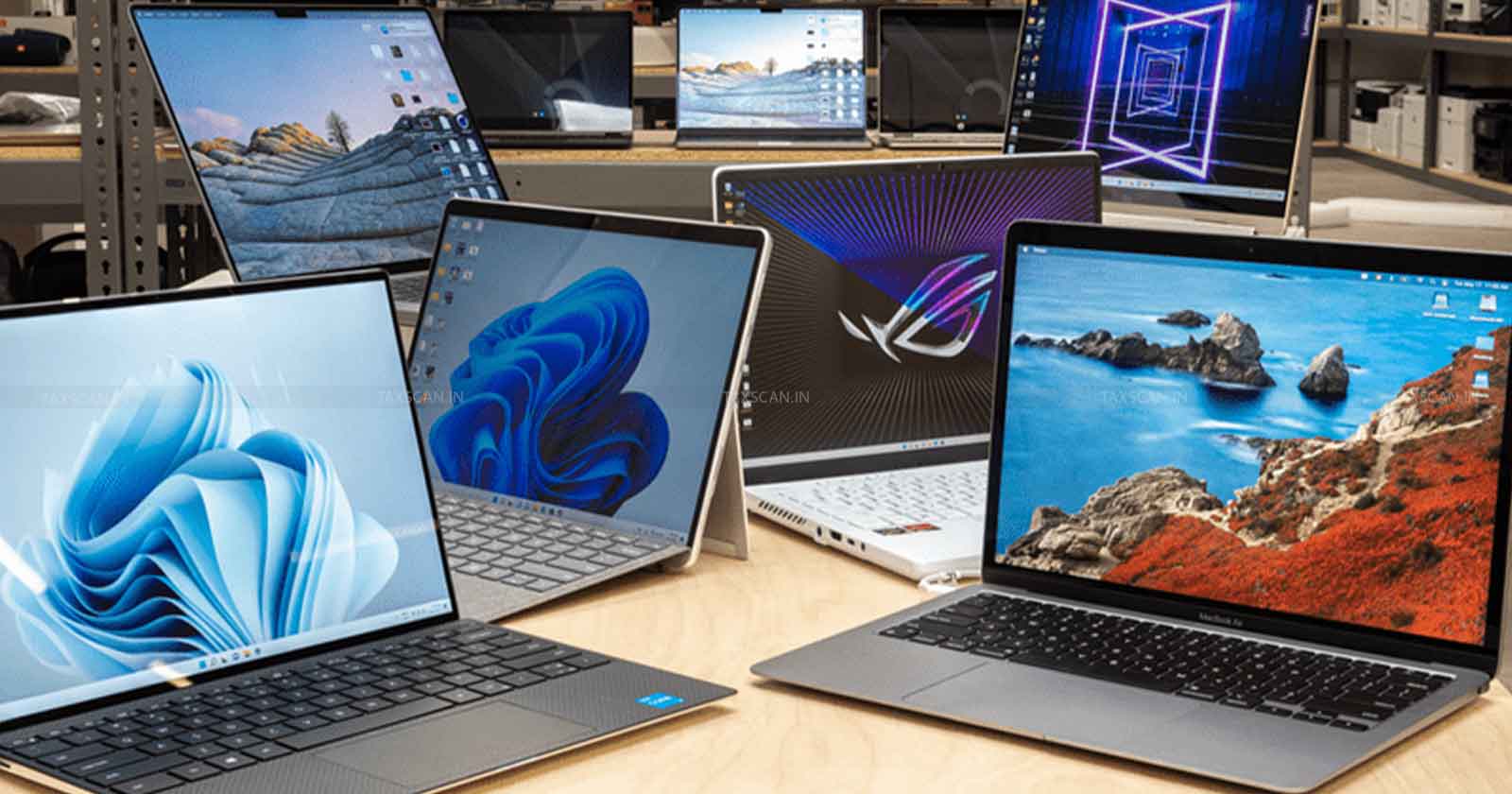India’s New Laptop Import Regulations: A Step Backward or a Step Towards Tech Self-Reliance?
India's new import regulations on laptops could restrict consumer choice and hinder the tech market's growth. While the government aims to support local manufacturing, this move may ultimately stifle innovation. From a libertarian perspective, the policy is a step backward, limiting the freedom of choice and competition that make markets thrive.

So, India just dropped a bombshell on tech lovers – starting January 1, 2025, companies importing laptops, tablets, and computers need to jump through bureaucratic hoops to get government approval. While the government claims it’s a masterstroke for boosting local manufacturing, we’re left wondering if the real goal is to make your favorite laptop brand harder to find than your WiFi password when you need it most.
The Policy: It’s Getting Complicated (Because Why Not?)
)
From January 1, 2025, every tech company looking to import laptops, tablets, ultra-small computers, and servers into India will have to get fresh permission from the Directorate General of Foreign Trade (DGFT). Yes, you heard that right – your favorite gadgets might need permission slips now, like you’re trying to bring snacks into a movie theater.
On one hand, the government promises this move will boost local manufacturing. On the other hand, it feels like a bad breakup where you’re forced to choose between your existing brand and an ex you can’t remember why you dated in the first place. Either way, choices are now going to get more limited, and that’s never a fun situation in a country that thrives on variety.
The Catch: Who Needs Freedom of Choice Anyway?
India's tech market has been blessed with a wide array of choices. Want an Apple MacBook? Dell XPS? Lenovo ThinkPad? Well, you could get them. And fast. But now, with this new rule, importing products from global tech giants will require approval from government bodies. Cue the dramatic music.
This means that you might not have the luxury of having 10 different laptop options at your local electronics store. Instead, you’ll be playing a game of “Will I Ever See That Specific Model Again?” Imagine trying to pick your next laptop like it’s a rare Pokémon – exciting yet equally frustrating. While local manufacturing gets a boost, your options just got smaller. And let’s face it, no one likes feeling cramped.
Libertarianism to the Rescue (Or Not): Can We Just Let Consumers Choose?

Here’s where things get fun — and by fun, I mean slightly sarcastic. Libertarians (that’s us, in case you missed the memo) believe the government should back off when it comes to the marketplace. The logic is simple: When the market is free, consumers are happy, competition is healthy, and businesses are forced to innovate.
But this new import restriction? Well, it's like putting a handbrake on a racecar. By limiting imports, we’re essentially saying, “Hey, consumer, you don’t need all those fancy choices. A less fancy laptop will do, right?”
And that’s the problem. The free market thrives on competition — especially when it comes to tech. The best products come from the pressure to be the best. So, restricting imports could slow down innovation and leave us stuck with products that are a bit behind the times. So much for “Make in India” when “Made in India” can’t even compete on the global stage yet.
Local Manufacturing Might Not Be the Savior We Hoped For
We get it. "Atmanirbhar Bharat" (self-reliant India) is the dream, but here’s the reality check: India’s manufacturing sector is still getting its act together. No amount of bureaucratic red tape can suddenly turn India into the next Silicon Valley. Sure, some homegrown brands are making strides, but to compete with international giants that have years of R&D backing them, local manufacturers will need more than just a cheerleader and a new policy.
Instead of forcing consumers into a box where their options are limited, the government should focus on creating a favorable environment where local manufacturers can stand shoulder to shoulder with global brands. It’s about encouraging local production, not forcing it on people who just want a great laptop.
What’s the Real Deal with All This?
So here’s the big question: Will this policy really push India into becoming a self-reliant tech powerhouse? Or will it just make us miss our favorite brands even more?
In an ideal world, the government would ditch the restrictions and focus on what really matters: creating an ecosystem where businesses can thrive. This means better infrastructure, fewer barriers to entry, and policies that encourage innovation.
But as it stands now, we’re left trying to figure out how to get our hands on a Dell XPS without waiting for a bureaucratic approval stamp. Just imagine the nightmare of trying to get your hands on an iPhone under these rules.
Conclusion: Here’s to a Free (and Tech-Ready) Market
In the grand scheme of things, India’s new import regulations on laptops might sound like a great way to support local manufacturers. But it’s a classic case of "good intentions, bad execution." Restricting imports means fewer choices for consumers, stifled innovation, and possibly higher prices. All in the name of “self-reliance.”
Instead of rolling out the red tape, let’s embrace a free market where local manufacturers can thrive alongside international giants. The best way to empower India’s tech sector is by opening the doors to competition, not closing them. So, let’s give consumers what they deserve: more choices, better products, and the freedom to shop without a bureaucratic GPS.
Sources:
-
Reuters: Reports that India plans to limit imports of laptops, tablets, and personal computers to boost local manufacturing.
-
India Briefing: Discusses the extension of the import management system for IT hardware products, including laptops, tablets, and servers, until December 31, 2025.
-
MediaNama: Reports that importers of laptops, tablets, PCs, and servers in India must apply for fresh import authorization for the financial year 2025.
-
NDTV Profit: Highlights that importers of laptops and tablets need fresh approvals for 2025, with the application window open from December 13, 2024, to December 15, 2025.
-
The Times of India: Reports on the government's plans to limit laptop, tablet, and PC imports starting January 2025 to boost domestic manufacturing.
-
Moneycontrol: Discusses the government's potential plans to reduce import limits by 5% for laptops, tablets, and PCs from 2025.
-
Reuters: Reports that India has announced that from January 1, 2025, companies will need to seek new approvals to import laptops and tablets.
-
Reuters: Reports that India's production-linked incentive (PLI) scheme has successfully attracted over $17 billion in investments across 14 sectors, including electronics, pharmaceuticals, and textiles.
What's Your Reaction?




















































